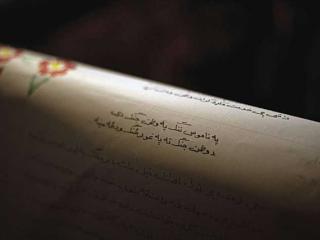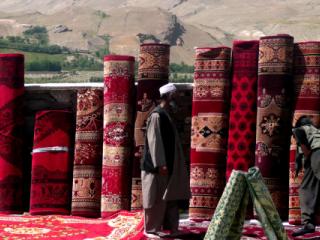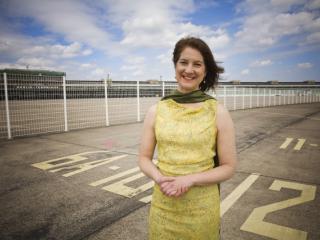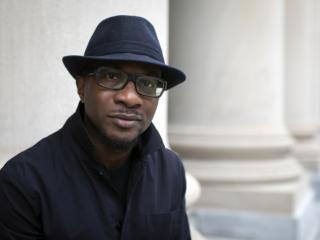Composer, environmental philosopher and guest producer David Rothenberg teaches us how to deeply listen to urban spaces.More
Arts and Culture
Andreas Weber is a German biologist and philosopher with a highly unconventional way of describing the natural world, one in which "love" is a foundational principle of biology.More
One of the greatest walkers of our time, William Helmreich — known for exploring every street in New York City — was an early casualty of COVID-19. But composer David Rothenberg got to walk with him one last time, around wetlands in Queens.More
To unpack the history of African musical migration, you have to go back to European colonization, says musicologist Ron Radano. He's been rewriting the history of race and Black music, and he says, "We are all African when we listen."More
Afghan women are complicated. They pray, have affairs, and get mad at their children. But it seems one thing binds them — the landay. Poet and journalist Eliza Griswold went to Afghanistan in 2012 learn more about a type of poem that Afghan women have been sharing since 1700 BCE.More
Anna Badkhen spent a year in the remote Afghan village of Oqa. She got to know the master weavers, who make some of the world's most beautiful carpets.More
Albert Camus’s first novel, "The Stranger," speaks strongly to the search for meaning. It’s the story of an alienated man who commits a senseless murder. Literary critic Alice Kaplan calls it "the perfect Black Lives Matter book."More
The poet Nikki Giovanni, reading her poem "One Ounce of Truth Benefits Like a Ripple on a Pond."More
One of Charles’ favorite musician interviews is with country music star Brandy Clark. Brandy and Charles have a similar upbringing and he had a strong connection with her album “Big Day in a Small Town.”More
With "Broadcast From Home," New York City composer and musician Lisa Bielawa hopes to set the thoughts and emotions of quarantine to music, in the voices of anyone willing to contribute a performance. More
Philip Pullman, the celebrated English writer has just written a 630-page sequel brimming with contentious ideas about religious tyranny, the loss of imagination and the nature of consciousness — all in a book that’s marketed to children.More
Nineteenth century European explorer David Livingstone died of malaria nearly 150 years ago, but as author Petina Gappah explains, Africans are still debating his legacy today as they assess the impact of European colonialism.More
Alex Abramovich recommends "Blues People: Negro Music in White America" by Leroi Jones, who later changed his name to Amiri Baraka.More
Celebrated jazz pianist Vijay Iyer talks improv and basketball with Steve backstage before a show.More
Norway's acclaimed pianist Tord Gustavsen recommends another Norwegian classic, Masqualero's album "Bande a Part."More
Teju Cole grew up in Nigeria and then moved to U.S., joining millions of others in the African diaspora. He became an acclaimed novelist and photographer, and now celebrates the cosmopolitan culture of global cities, including Lagos and New York.More
When you’re visiting a new city, it helps to have a guide. Dejene Hodes took Anne and Steve on a tour of Addis Ababa, from the Mercato to the financial district. He says the city is bursting with entrepreneurial energy and ambition.More
Ghanaian post-colonial theorist Ato Quayson thinks a lot about globalization, diaspora and transnationalism. Because he’s a literary scholar, he decided to "read" a single street — Oxford Street in Accra — as a study of contemporary urban Africa.More


















